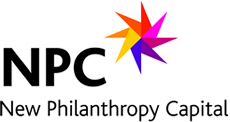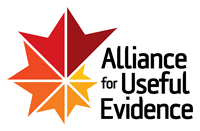In Happiness: Lessons from a new science Richard Layard demonstrates the paradox at the heart of our lives: Most people want more income, yet as societies become richer, they do not become happier. Scientific research shows this to be true. There are now sophisticated ways of measuring how happy people are, and evidence shows that on average people have grown no happier in the last fifty years, even as average incomes have more than doubled. This book is considered to be a leading resources in the field of “happiness studies”.
This research paper by Neil Reeder, Gemma Rocyn Jones, John Loder and Andrea Colantonio (LSE) is the second in the Measuring impact beyond financial return series and follows on from Measuring impact and non-financial returns in impact investing: A critical overview of concepts and practice. It draws out points of convergence and divergence in approaches to impact measurement.
Testing out hypotheses set out in the first research paper described above, it is based on information derived from a series of interviews with established impact investors in the fields of the environment; social enterprise; microfinance; and social impact bonds.
Subjective wellbeing data is becoming increasingly popular in economics research. The wellbeing valuation approach uses wellbeing data instead of data gleaned from preferences to attach monetary values to non-market goods. This method could be an important alternative to preference-based valuation methods such as contingent valuation, but there are a number of significant technical deficiencies with the current methodology. It is argued that the current method derives biased estimates of the value of non-market goods. This discussion paper by Daniel Fujiwara presents Three-Stage Wellbeing Valuation, a new approach to valuation using subjective wellbeing data that solves for the main technical problems and as a result derives estimates of welfare change and value that are consistent with welfare economic theory.
This working paper from Neil Reeder and Andrea Colantonio (LSE) provides an overview of the underlying concepts of impact investing as a form of socially responsible investment. Drawing on relevant literature, this paper casts a critical eye on the roles and responsibilities within measurement, making more explicit the subjective interpretation of social and environmental return (SER) by investors, and the clash of suppositions taken from other older measurement traditions.
This paper by Daniel Fujiwara from the LSE launches a national discussion on identifying the evidence needs to prove the impact of adult learning for decision making at local and national level. This piece of research flows from two pieces of NIACE work: on behalf of the Local Government Association exploring the changing strategic role of adult learning and skills in communities; and our work for the Skills Funding Agency completing Social Return on Investment (SROI) analyses with a sample of Adult and Community Learning Funding projects, in partnership with the SROI Network. Using the Well-being Valuation (WV) approach, this paper shows that adult learning adds value to many wider agendas.





